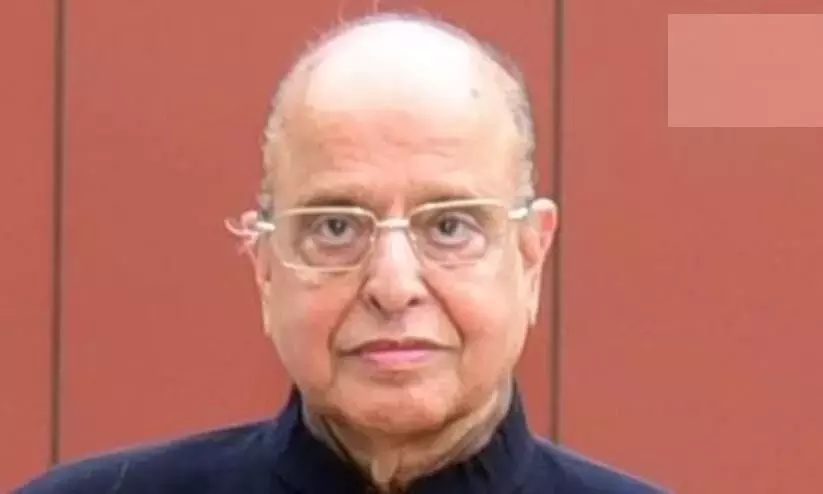
Farewell to the guide of celestial dreams
text_fieldsDr K. Kasturirangan, who passed away on Friday, was a great scientist and administrator who steered India's space dreams. He was undoubtedly the intellectual source and driving force behind the fundamental achievements of India's space research agency, ISRO. Establishing a space agency was one of the developmental dreams that found a place in post-independence India's vision from the very beginning. While this Nehruvian dream was realized by Vikram Sarabhai, Satish Dhawan, and U.R. Rao, it was Kasturirangan who elevated ISRO into a great research institution capable of competing with the technologies of other nations. This is precisely where his fame belongs. After Satish Dhawan and U.R. Rao, he served as ISRO's chairman for the longest period. His contributions to the nation as the head of the Aryabhata Project Management Board, formed by ISRO for the construction of India's first satellite, Aryabhata, are immeasurable. Starting with Aryabhata and culminating in Chandrayaan, his official contributions were then followed by his active presence in academic and research fields, serving the nation until his death.
"Beyond the question of whether we can achieve it, the more important question is whether we can afford to ignore such a dream," was Kasturirangan's response when the practicality of the Chandrayaan mission was questioned. This quote is widely used by the scientific community to signify the determination of Kasturirangan's brilliance. The incident occurred in 2003, when he was the chairman of ISRO. At that time, the only advanced rocket available for the project was the PSLV. Yet, the central government yielded to Kasturirangan's determination to proceed with the mission, leading to the realisation of Chandrayaan-1. Although he stepped down from ISRO before the project came to fruition, the foundational concept of the mission was developed by a team led by Kasturirangan. ISRO has been a witness to his steadfastness and sincere efforts since the time of Aryabhata's development. He was also the architect of India's first low-orbit satellite, Bhaskara. Between 1990 and 1994, Kasturirangan served as the director of the Indian Satellite Centre, a noteworthy period. His knowledge and expertise in astrophysics and satellite technology were most utilized by ISRO during this time. It was during this period that India's satellite launch vehicles, PSLV and GSLV, were developed. Additionally, satellites referred to as "new-gen satellites", such as INSAT and Indian Remote Sensing Satellites, were realised as a result of his efforts. It is important to remember that it was these developmental achievements that paved the way for Chandrayaan and Mangalyaan. Furthermore, he succeeded in establishing new research levels in gamma-ray astronomy and other areas related to non-luminous wavelengths for space observation and cosmic studies, in collaboration with ISRO and other scientific institutions. Alongside accelerating the natural growth of technology, he also focused on enabling ISRO and India's scientific community to advance cosmic knowledge. In that sense, he stood out from other talents who led ISRO.
Kasturirangan's vision was well recognised by Indian society and successive governments. This is why he continued to contribute to scientific, technological, and academic fields even after his official tenure. It went to such an extent that the central government entrusted him with studying the issues faced by the Western Ghats and its associated ecological framework. This occurred when concerns arose from various quarters regarding the Gadgil Committee's report on the environmental crisis in the Western Ghats. While Kasturirangan agreed with the Gadgil report in principle, differences in practical implementation sparked some controversies. These controversies somewhat tarnished his image as a scientist. Later, even when he headed the National Curriculum Committee, he couldn't replicate the performance reminiscent of his ISRO days. Yet, Kasturirangan remains a monumental figure - a textbook of sincerity, determination, leadership, and research excellence. He will forever be remembered as an unparalleled model of these qualities. The nation mourns the loss of this extraordinary talent it gifted to the world, and 'Madhyamam' joins in expressing its grief.












